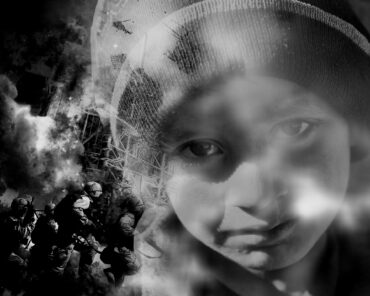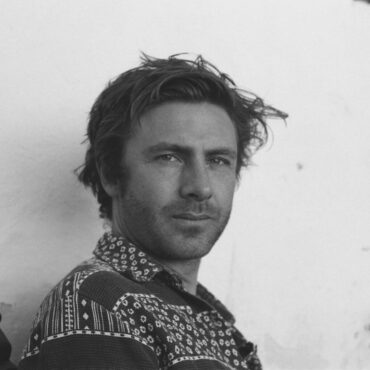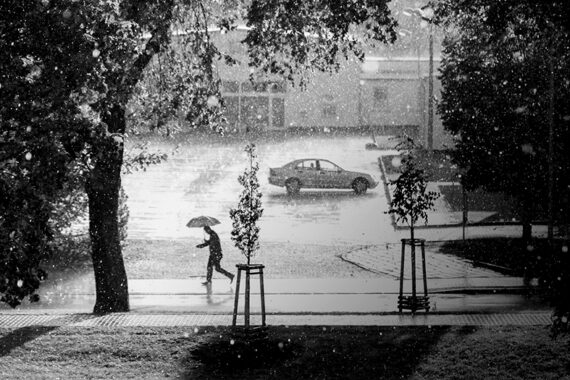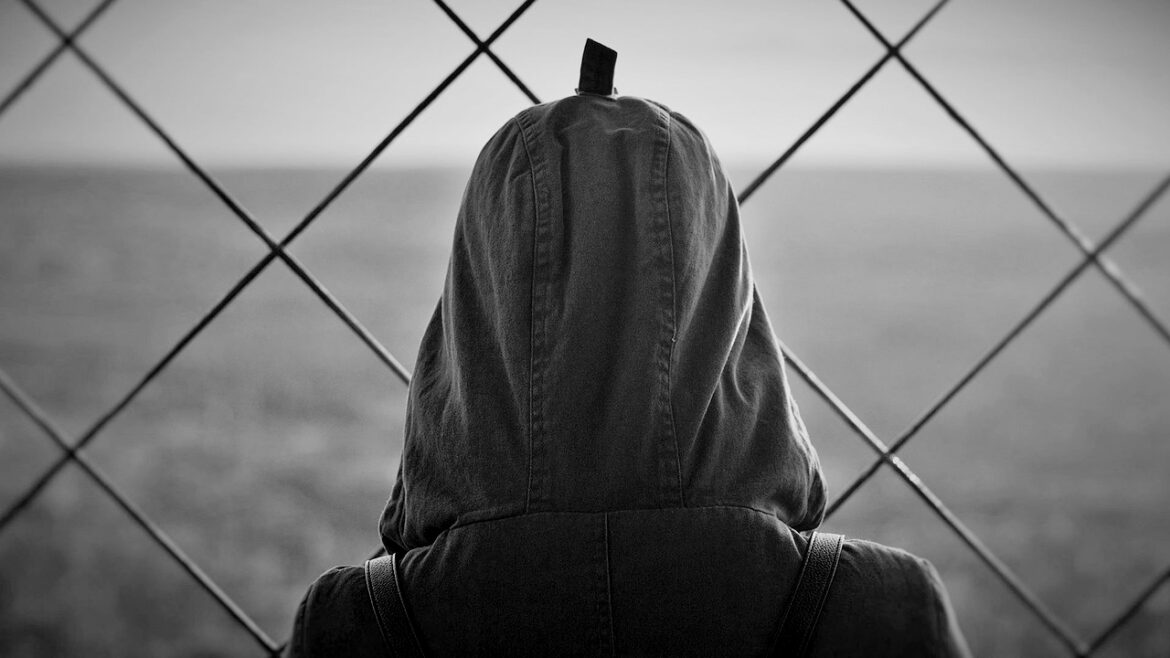
AGENDA, KEYNOTES, SPEAKERS & CHAIRS
Agenda
Opening of the Convention
Dr Jussi Ronkainen, Finland
Dr. Jussi Ronkainen (PhD, sociology) is the Head of RDI and the Director of Juvenia – Youth Research and Development Centre at the South-Eastern Finland University of Applied Sciences. Ronkainen has 20 years of research experience especially from the fields of mixed-methods research, interdisciplinary youth research and citizenship studies. He has led, coordinated and planned a commendable variety of regional, national and international research and development projects in the youth field.
Convention Keynote Speakers
Orban Wallace is an award-winning director/producer and co-founder of Gallivant Film. Orban has been directing short films and creative commercial content for the past 10 years alongside global brands. Orban’s short films have played at Cannes, Vancouver, and have been shortlisted for the RTS Awards. Orban’s documentary feature debut Another News Story, which turned the cameras on the journalists reporting the 2015 refugee crisis, was heralded for its fresh and bold approach to the refugee subject, and its dynamic cinematic style and score. The film premiered at Karlovy Vary and has since played over 30 international festivals including IDFA, Zurich, and London before its worldwide SVOD distribution. It was shortlisted for the best international feature in the 2018 Grierson awards. Orban was selected for the BIFA Springboard 2020 and BAFTA Crew 2021 and has worked closely with BFI Doc society receiving a Grierson and BFI mentorship from Samm Hailley. Orban’s aim is to continue making timely human stories through documentary and fiction, growing Gallivant Films feature slate. Other documentaries also include Lost Songs of the Travellers; Eve; Playing Spaces and C.Macleod – Redbull to name but a few (cf. his website by clicking here).
Stream 1: Climate Change, Insecurity and Danger
Introductory Speaker: Dr. Alexis Buettgen, Canada
Dr. Alexis Buettgen is a community-engaged scholar with an interdisciplinary academic background in community psychology and critical disability studies. Alexis has over 15 years of experience in community-based participatory research and evaluation as a senior researcher at several community-based research organisations, academic institutions and activist organisations of people with disabilities. These experiences inform her research program to critically examine issues of poverty, exclusion, and intersectional approaches to promote equity, sovereignty, and social and environmental justice for historically marginalized groups of people. Her current research focuses on disability inclusion in the green economy which aims to bridge the gap between academic knowledge and climate action. Her work connects the local with the global through fieldwork carried out at local, national, regional and international levels and published for academic, government and broader community audiences. She is Co-Editor-In-Chief of a major reference work – Handbook of Disability: Critical Thought and Social Change in a Globalizing World (2022) – and affiliated with McMaster and York University in Canada.
Chair: Dr Renata Gomes Alcoforado, Brazil
Renata Gomes Alcoforado has worked in the Department of Accounting and Actuarial Sciences at the Federal University of Pernambuco (Brazil), since 2015. Member of the Transitional Government 2022/2023 in Brazil. Member of the Portuguese Actuaries Institute. Member of the Portuguese research centre CEMAPRE. Her research interest focus on setting up benefit age adjustments on public pensions, considering heterogeneity among states and gender. Also in Risk and Ruin Theory, particularly on ruin and dividend measures in the renewal risk model. Her PhD, Summa Cum Laude, is on Applied Mathematics to Economics and Management at ISEG – Universidade de Lisboa (Portugal).
Stream Overview
Natural disasters due to climate change can have cataclysmic consequences: especially for people living in areas with high rates of poverty, poor infrastructure and a lack of sustainable environmental policies. This stream calls for papers dealing with the societal position of people living in unstable environmental conditions caused by the inability of societies to face climate change and the risks and threats that it causes relating to safety, wellbeing and health.
Stream 2a: War, Refugees and Migration: What Happens Next?
Introductory Speaker: Dr. Mustapha Sheikh, UK
Dr Mustapha Sheikh is Associate Professor of Islamic Thought and Muslim Societies in the School of Languages, Cultures and Societies at the University of Leeds and Visiting Professor at the University of Punjab, Pakistan. He is Co-Director of the Iqbal Centre for Critical Muslim Studies, a centre with a commitment to decolonising the study of Muslims/Islam and to building links between the university and the wider Muslim community. Mustapha’s areas of expertise include Ottoman history, Islamic law and legal theory, Critical Muslim Studies, Islamophobia, Muslim intellectual history, refugee status and migration.
Chair: Dr. Kari Saari, Finland
Dr. Kari Saari works as a researcher at Juvenia –Youth Research and Development Centre at South-Eastern Finland University of Applied Sciences (XAMK). He holds the title of docent (sociology of law and criminology) at the University of Turku, Finland. His research interests have focused on youth studies, civic activism, social movements, ethnic relations, citizenship and the relations between the police and citizens. Recently Saari has worked as a researcher in two projects funded by the Academy of Finland (‘Citizenship Constellations’/ ‘Citizen Mindscapes’) and EU-funded (FP7) international ‘Memory, Youth, Political Legacy and Civil Engagement (MYPLACE)’ project.
 Stream Overview
Stream Overview
War threatens security and causes social instability to a profound extent. Forcing people to leave homes due to the loss of safety, results in wars not only violating basic human rights and causing considerable damage to individuals but also to whole nations. The stream calls for papers concerning the effects of war and the unstable safety conditions inflicted upon migrated people in relation to their violent, socio-economic, social, cultural and individual upheaval.
Online Parallel Stream 2b: War, Refugees and Migration: What Happens Next?
Chair: Kristiina Korjonen-Kuusipuro, Finland
PhD. Kristiina Korjonen-Kuusipuro holds a Title of Docent in Cultural Anthropology at the University of Jyväskylä and she works as a Project Researcher at Juvenia – Youth Research and Development Centre at the South-Eastern Finland University of Applied Sciences. Her previous research includes themes like transnational belonging of unaccompanied children and youth and experiences of forced displacement and emotional ties to place. Currently, she examines the digital social inequalities among youth in project DEQUAL.
Stream Overview
War threatens security and causes social instability to a profound extent. Forcing people to leave homes due to the loss of safety, results in wars not only violating basic human rights and causing considerable damage to individuals but also to whole nations. The stream calls for papers concerning the effects of war and the unstable safety conditions inflicted upon migrated people in relation to their violent, socio-economic, social, cultural and individual upheaval.
Stream 3a: Indigenous People and Ethnic minorities at the Margins of Safety and Security
Introductory Speaker: Research Professor Rauna Kuokkanen, Finland
Research Professor Rauna Kuokkanen is a Research Professor of Arctic Indigenous Studies at the University of Lapland (Finland) and Adjunct Professor of Indigenous Studies and Political Science at the University of Toronto. Her research focuses on comparative Indigenous politics and law, Indigenous feminist theory, Arctic governance and settler colonialism. She is a Fulbright Arctic Initiative Fellow for 2021-2022.
Rauna’s most recent book Restructuring Relations: Indigenous Self-Determination, Governance and Gender by Oxford University Press (2019) has been awarded with three prizes (the International Studies Association’s Feminist Theory and Gender Studies Section Best Book Award 2020, the British International Studies Association’s Susan Strange Best Book Prize and the Canadian Political Science Association Prize in Comparative Politics in 2020). It has also been selected as the semi-finalist for the US-based Grawemeyer 2021 Award for Ideas Improving World Order. Drawing on extensive interviews and political theory, the book is an Indigenous feminist investigation of the concept of Indigenous self-determination, governance and gender regimes in Indigenous political institutions.
Other books include Reshaping the University: Responsibility, Indigenous Epistemes and the Logic of the Gift (UBC Press, 2007) and Boaris dego eana: Eamiálbmogiid diehtu, filosofiijat ja dutkan (in the Sámi language, translated title: As Old as the Earth. Indigenous Knowledge, Philosophies and Research, 2009). She was the founding chair of the Sámi Youth Organization in Finland and has served as the Vice-President of the Sámi Council. She has also long worked and advocated for the protection of Sámi sacred sites, particularly Suttesája, a sacred Sámi spring in Northern Finland. Professor Kuokkanen was recently appointed as the Chair of the Arctic Program Committee of NordForsk. She is from Ohcejohka/Utsjoki, Sápmi (Finland).
Chair: Dr. Pey-Chun Pan, Taiwan
Dr Pey-Chun Pan is an Assistant Professor of Department of Social Work, National Pingtung University of Science and Technology (Taiwan). Her research is on accessibility, transport policy of disabled people and the social movement of people with Hansen’s Disease in Taiwan. She has joined several research projects including one on independent living policy, reasonable accommodation on health issues and the development of Taiwan human rights indicators of CRPD. She is a horticultural therapist as well. She has published 4 book chapters on disability and also published in the Community Development Journal Quarterly, the Journal of Disability Research and Taiwan: A Radical Quarterly in Social Studies.
Stream Overview
People living at the socially enforced margins of society due to their ethnic or Indigenous origin have to endure an inferior position in many parts of the world. They may lack legislative rights and, as a consequence, the absence of a judicial shelter further subordinates their positions and statuses in many spheres of society and culture. Due to a lack of equal rights and sufficient security networks, they are especially vulnerable at unsafe times of war and other threats. This stream calls for papers that reveal the position of Indigenous and ethnic minority groups of people placed in unpredictable or life-threatening circumstances as a consequence of flagrant discriminatory practices and attitudes that are exacerbated during times of crises.
Online Parallel Stream 3b: Indigenous People and Ethnic minorities at the Margins of Safety and Security
Chair: Dr Sílvia Mendes Camões, Portugal
Dr Sílvia Mendes Camões is an Associate Professor with Habilitation at the School of Economics and Management of University of Minho (Portugal) and an integrated Member of the Research Centre in Political Science (CICP) of the same institution. As a researcher and professor, her work intersects within the areas of Public Administration, Public Policy and Political Behaviour. Sílvia teaches about Political Process Theory, Political Evaluation, Administrative Theory and Research Methodology. She has published articles in Public Money and Management, the European Journal on Criminal Policy Research, the British Journal of Political Science and the Policy Studies Journal. Other pieces have appeared in the Law and Society Review, the International Journal of Public Administration, Peace and Conflict: Journal of Peace Psychology and the Journal of Leisure Research
Stream Overview
People living at the socially enforced margins of society due to their ethnic or Indigenous origin have to endure an inferior position in many parts of the world. They may lack legislative rights and, as a consequence, the absence of a judicial shelter further subordinates their positions and statuses in many spheres of society and culture. Due to a lack of equal rights and sufficient security networks, they are especially vulnerable at unsafe times of war and other threats. This stream calls for papers that reveal the position of Indigenous and ethnic minority groups of people placed in unpredictable or life-threatening circumstances as a consequence of flagrant discriminatory practices and attitudes that are exacerbated during times of crises.
Stream 4: Disability, Illness and Safety Infringements in an ’Ableist’ World
Introductory Speaker: Professor Colin Barnes, UK
Professor Colin Barnes is a disabled person and a special school survivor. He has been involved with the disabled people’s movement and has been member of several local, national and international organisations controlled and run by disabled people throughout his academic career. Crucially, he established the Centre for Disability Studies (CDS) as the British Council of Organisations of Disabled People’s (BCODP’s) Disability Research Unit (DRU) in the School of Sociology and Social Policy, Leeds in 1990 and was its Director until 2008. He also founded the independent publisher, The Disability Press in 1996 and an electronic archive of writings on disability issues, The Disability Archive UK in 1999. Since 1998, he was a member of Adjunct Faculty, Critical Disability Studies Programme, York University Toronto, Canada from 1998 until 2012. In addition, he was the Visiting Professor of Disability Studies in the School of Social and Health Sciences, Halmstad University, Sweden.
Chair: Dr Susan Eriksson, Finland
Dr. Susan Eriksson works as a Senior Researcher at Youth Research and Development Centre Juvenia in South-Eastern Finland University of Applied Sciences. She is PhD in Social Sciences (University of Tampere, Finland, 2003) and her expertise entails sociological research on working life and profession studies, marginalisation and services of vulnerable groups of young people, and impact of digitalisation on young people and youth services.
She has considerable experience in disability research (2007-) focused on daily lives and living conditions of persons with disabilities, personal budgeting in disability services, and social and health care of young people affected by FASD (foetal alcohol spectrum disorders). Recently Eriksson has studied lives and lifestyles of young people with disabilities. She has conducted two research projects funded by Ministry of Education and Culture in Finland in consortium with University of Eastern Finland (2015-2018) and University of Helsinki (2019-2022) dealing with opportunities of young people with disabilities to participate in physical and youth sports activities (For more details click here). In general, Susan is largely interested in opportunities for participation of young persons with disabilities and the nature of their youth per se.
 Stream Overview
Stream Overview
Individuals affected by disability and such illnesses that cause them restrictions in ‘functioning’ (in ableist perceptions) have serious challenges in securing their own safety at the times of global crises as many may need continuous support. Disabled people are not helped by the fact that ableist societal and cultural structures based on superiority of bodily abilities, false understanding and prejudices towards disability profoundly affect their statuses. This stream calls for papers concerning the abhorrent position placed on these individuals when looking at their safety during times of global crises.
Stream 5: Indigenous People and Ethnic minorities at the Margins of Safety and Security (Continued) (Papers 1 to 4) & Gender and Sexuality in a Heteronormative Time of War (Papers 5 to 8)
Introductory Speaker: Professor Karen Soldatic, Australia
Doctor Karen Soldatic is a Professor of Social Welfare, Disability Studies and Sociology in the School of Social Sciences, Western Sydney University (Australia). She has written, co-authored and edited ten books with her most recent including: Social Suffering in the Neoliberal Age: State Power, Logistics and Resistance (2022, see our ’News and Themes’ page), Women with Disabilities as Agents of Peace, Change and Rights: Experiences from Sri Lanka (2021), whilst prominent articles have included one on (Re)Claiming Health: The Human Rights of Young LGBTIQ+ Indigenous People in Australia (2022).
Professor Soldatic also co-authored an article entitled Mobility Tactics: Young LGBTIQ+ Indigenous Australians’ Belonging and Connectedness (2022). Earlier in her career, Karen was awarded a Fogarty Foundation Excellence in Education Fellowship for 2006–2009, a British Academy International Fellowship in 2012, a fellowship at The Centre for Human Rights Education, Curtin University (2011–2012) and an Australian Research Council DECRA Fellowship (2016–2019) examining the lived implications of poverty and inequality for Indigenous persons living with disability with the intensification of neoliberal welfare retraction. Her research on global welfare regimes builds on her 20 years of experience as an international (Cambodia, Sri Lanka, Indonesia), national and state-based senior policy analyst, researcher and practitioner. She obtained her PhD (Distinction) in 2010 from the University of Western Australia.
Chair: Jaana Poikolainen, Finland
Jaana Poikolainen (PhD, Educ.) works as Research Manager at Juvenia – Youth Research and Development Centre Juvenia at the South-Eastern Finland University of Applied Sciences. Her current research interests focus on young people`s well-being from different perspectives: e.g. youth participation, equal opportunities and institutional trust in different contexts such as service systems and residential areas. She is also interested in research methodology as well as research ethical issues. For over 20 years, she has planned and led several development and research projects.
Stream Overview
Heteronormative assumptions on gender and sexuality shape and construct social and cultural relations and status in those societies where social rights regarding gender equality and sexuality are still insufficient or non-existent. This stream calls for papers that tackle gender rights–or violations of those rights–during war and unsafe times. We especially welcome papers that deal with structures and practices of normative or hegemonic masculinity and its reverberations, both in the short-term and the long-term, that times of war and a lack of safety have on gender, gender identities and embodiments.
Stream 6: Global Crisis as a Generational Experience and the Insecure Futures of the Young and Old
Introductory Speaker: Research Professor Sofia Laine, Finland
Sofia Laine holds a PhD in Development Studies and holds a title of docent in Youth Studies (Tampere University). Her multidisciplinary research has focused on young people, and political and cultural engagements in multiple national, European, Mediterranean, and global settings. More recently she has also studied young refugees, volunteer work, and art education. Most recently she worked in the Academy of Finland funded research project: ’What works? Youth transitions from education to employment in the Middle East and North Africa’ (2019–2023’, University of Tampere). Now, she also leads a project in the Finnish Youth Research Network that analyses young people’s leisure-time activities in public and semi-public places during the Covid-19 pandemic. Before her appointment to Research Professor position, she worked as a Research Manager (2021-2022) at Juvenia – the Youth Research and Development Centre in the South-Eastern Finland University of Applied Sciences.
Chair: Dr. Sari Tuuva-Hongisto, Finland
Dr. Sari Tuuva-Hongisto, South-Eastern Finland University of Applied Sciences (XAMK, Finland) works as a research manager in Juvenia – youth research and development centre. She is a scholar of cultural studies and has wide expertise on ethnographic research and youth studies. Currently, Sari is working as PI at Dequal: Capturing Digital Social Inequality – Young Digi-natives’ Asymmetrical Agencies Within Socio-technical Imperatives and Imaginaries, funded by Academy of Finland. At Juvenia, she has carried out several research reports and policy briefs (on rural youth, marginalisation of youth and regional segregation, digital youth work).
Stream Overview
Young people who have recently been affected by vast global crises posing security threats, such as the global coronavirus pandemic, climate change and war. In many countries, social polarisation amongst young people has been deepening during the pandemic. It indicates that many (especially those in a vulnerable socio-economic position) lack supportive networks to face the threats affecting their sense of security and, as a consequence, have to fully confront the changes in daily life practices that have been caused by these crises. This stream calls for papers concerning the abilities of young people to cope with the global crises and its consequences as well as examining the effects such crises have on their lives on a national, cultural and individual level.
Closing Remarks
Dr Simon Prideaux, England
Dr Simon Prideaux (retired) was an Associate Professor of Social Welfare, Disability Studies and Crime in the School of Sociology and Social Policy, University of Leeds (England). At present, he is the Co-founder and Co-director of (In)Justice International. To date, he has written, co-authored and edited five books entitled Crimes, Criminality and Injustice: An Interdisciplinary Collection of Revelations (2023), Crimes of States and Powerful Elites: A Collection of Case Studies (2021), State Crime and Immorality: The Corrupting Influence of the Powerful (2016), Understanding Disability Policy (2012), Not So New Labour: A Sociological Critique of New Labour’s Policy and Practice (2005). He has also published in the journals Social Policy & Administration, the Canadian Journal of Sociology, Political Quarterly, Disability & Society and the International Journal of Social Welfare. Talks and/or keynote speeches have been given in Canada (Toronto), the Czech Republic (Olumouc), Finland (Mikkeli), Japan (Osaka and Tokyo), Malta (Saint Julians), Portugal (Braga and Lisbon), Slovakia (Tatranska Lomnica), Taiwan (Chun Cheng, Kaohsiung and Taipei) and the UK (Bath and Lancaster).
Format
The Streams are organised into two sessions of four presentations (given online, in-person or pre-recorded). Presentations are for 15 minutes only. After a session of four talks, the audience (online or in-person) will be organised into workshop breakout rooms to conduct a discussion on what they have heard and what questions they have for the presenters. After 10-15 minutes all will return for a Q&A session.



